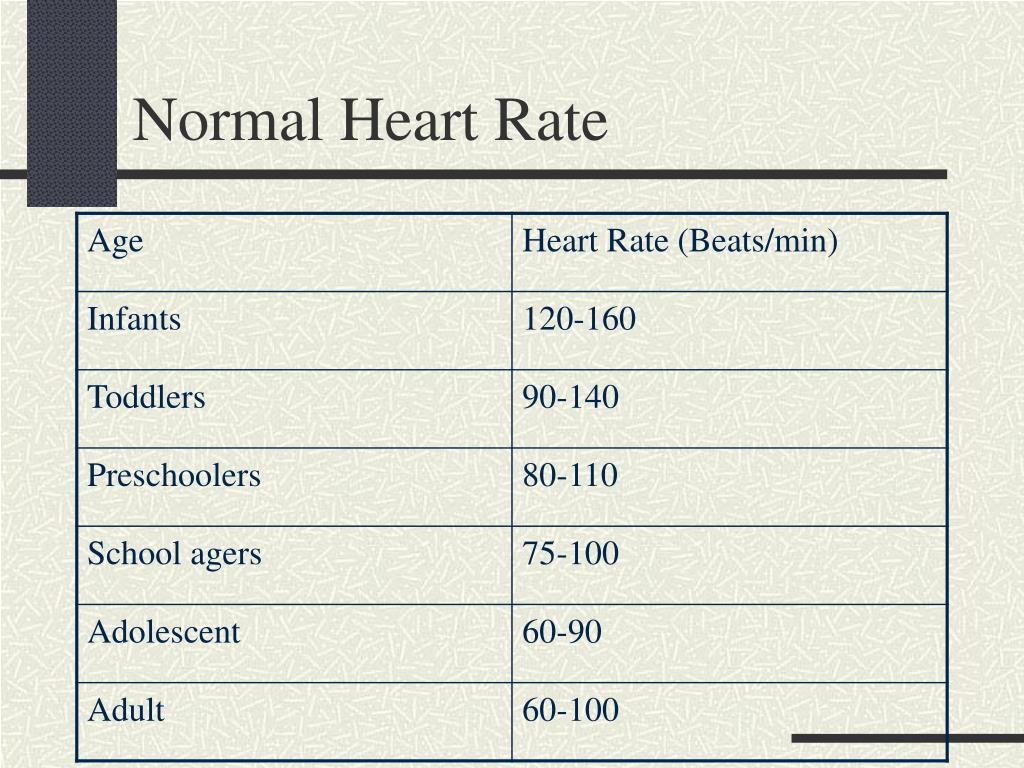The normal heart rate for a human is 70 100 beats per minute

The Normal Heart Rate for a Human is 70-100 Beats per Minute

The human heart is an incredible organ that works tirelessly to pump blood throughout our bodies, ensuring the delivery of oxygen and nutrients to every cell. One important measure of heart health is the heart rate, which refers to the number of times the heart beats per minute. The normal heart rate range for an average adult at rest is considered to be between 70 and 100 beats per minute (bpm).
Whether you’re an athlete or someone who leads a relatively sedentary lifestyle, it’s important to understand what a normal heart rate signifies and how it can affect your overall well-being. In this article, we will delve deeper into the normal range for heart rate, the factors that can influence it, and what it means for your health.
Factors Affecting Heart Rate
Various factors can influence an individual’s heart rate. One important determinant is age. As we age, our heart rate tends to decrease. Newborns, for example, have a normal heart rate range of 100-160 bpm, whereas children aged 1-10 years have a range of 70-120 bpm.
Physical fitness and activity level also impact heart rate. Individuals who are physically fit tend to have lower resting heart rates because their hearts are more efficient at pumping blood. Regular exercise can lead to a lower resting heart rate, as the heart becomes stronger and more capable of pumping blood with each beat. On the other hand, individuals who are inactive or lead a sedentary lifestyle may have higher resting heart rates.
Other factors that can influence heart rate include stress levels, emotions, medications, caffeine intake, and certain medical conditions. These factors can cause temporary fluctuations in heart rate, which may briefly fall outside the normal range.
The Importance of a Normal Heart Rate
Maintaining a normal heart rate is crucial for overall health and well-being. A heart rate that consistently falls outside the normal range may be an indicator of an underlying health issue that requires attention.
For instance, a consistently high resting heart rate (above 100 bpm at rest) may indicate a condition called tachycardia. This condition could be caused by various factors, including stress, anxiety, high blood pressure, or an underlying heart condition. Tachycardia can put extra strain on the heart and increase the risk of developing cardiovascular diseases such as heart failure or stroke.
Similarly, a consistently low resting heart rate (below 60 bpm at rest), known as bradycardia, can be a sign of an underlying health condition such as an underactive thyroid or an electrolyte imbalance. Bradycardia can cause symptoms such as fatigue, dizziness, and fainting, and may require medical attention.
Monitoring Your Heart Rate

Monitoring your heart rate regularly can be beneficial in gaining insights into your cardiovascular health. Technological advancements have made it easier than ever to keep track of your heart rate at home. Fitness trackers, smartwatches, and smartphone apps equipped with heart rate monitoring capabilities can provide real-time data to help you stay informed about your heart’s health.
When measuring your heart rate, it’s important to do so at rest and under relaxed conditions, as physical activity and body position can affect the measurements. Ideally, measure your heart rate in the morning before getting out of bed, as this will give you a reliable baseline. If you notice consistently high or low heart rates, it is advisable to consult with a healthcare professional to determine the underlying cause.
Conclusion
The normal heart rate range for a human is 70-100 beats per minute. However, it’s crucial to understand that heart rate can vary depending on factors such as age, fitness level, and overall health. Maintaining a normal heart rate is essential for overall well-being, and consistently high or low heart rates may indicate underlying health conditions. By monitoring your heart rate, you can gain valuable insights into your cardiovascular health and seek timely medical advice if needed. Remember, keeping your heart healthy ensures the continuous flow of life-sustaining blood throughout your body.
Tags
Share
Related Posts
Quick Links
Legal Stuff

